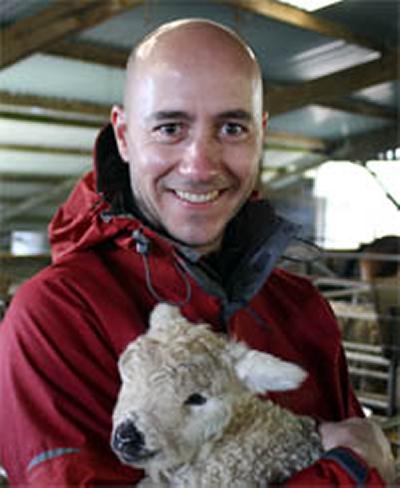Andy Nelson BSc Environmental Sciences
Field Studies Council, Exmoor National Park

The course also has a good reputation within its field. I liked the wide choice of modules available to ES students, including many with an ecological focus, which I was particularly interested in. Also, for someone interested in marine ecology, having the National Oceanography Centre as one of its campuses was an attraction.
What did you enjoy about the course?
As a mature student, I enjoyed taking the time out from work to learn about a subject I was passionate about. I’m sure I appreciated the learning experience much more than I would have done when younger! The social side of university life was also fun. Despite being the oldest on the course, I quickly felt part of the group and enjoyed going out for the odd shandy with the youngsters!
What’s Southampton like as a place to study?
I think it has a lot going for it, being big enough to have a decent shopping centre, nightlife, etc. but small enough to get around easily. The university run bus service makes travel around the city very easy for students.
Was your degree useful for your career?
Yes, absolutely. The course gave me good foundations on which to build an environment related career. Having increased not just my environmental knowledge but also improved transferable skills, I feel the course struck a good balance between its academic and vocational aims.
Tell us about your career since graduation
By the end of my degree, I had already started working for an organisation concerned with sustainable development within the Solent area. Despite gaining a lot experience and making many contacts from this role, I decided I wasn’t ready for a full-time desk job just yet! I then moved to work for The Field Studies Council, an environmental education charity. My days at the centre, in Exmoor National Park, now vary between trying to source fair trade products for the centre shop, to teaching A Level students Biology and Geography field work!
What advice would you give to a student starting out on a ES degree at Southampton?
Get involved! With relatively small year groups, it’s quite easy to get to know your fellow students, both in your year and those above and below you. Also, get to know the Environmental Sciences staff, both on the administrative side and the teaching team. If you have a problem, I always found the staff very approachable and keen to help.
Why did you choose to study ES at Southampton?
The course also has a good reputation within its field. I liked the wide choice of modules available to ES students, including many with an ecological focus, which I was particularly interested in. Also, for someone interested in marine ecology, having the National Oceanography Centre as one of its campuses was an attraction.